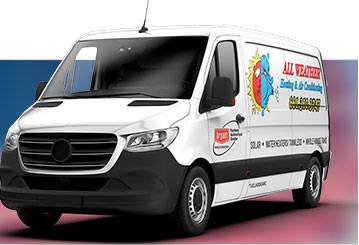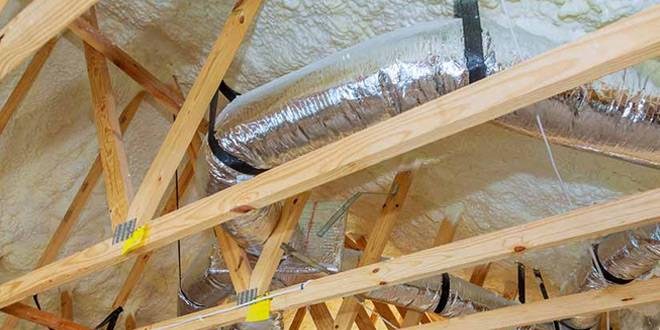
When it comes to optimizing your home for energy efficiency, every component of your heating and cooling system plays a pivotal role, including the often-overlooked air ducts. Many homeowners and business owners ponder over the real impact of air ducts on energy savings and overall system efficiency. It’s a valid concern, given that heating, ventilation, and air conditioning can account for a significant portion of your energy bills.
Understanding Air Ducts and Energy Efficiency
Air ducts, an essential component of your home’s HVAC system, serve the critical function of distributing air throughout your living space. Whether cooling or heating, the efficiency with which these ducts operate can significantly impact your home’s energy consumption and, by extension, your utility bills. Let’s break down the key factors that play into the energy efficiency of air ducts.
The Role of Air Ducts in HVAC Systems
Air ducts are the pathways through which heated or cooled air travels from your HVAC unit to various parts of your home. The design, installation, and condition of these ducts can either enhance or detract from the overall efficiency of your system. Ideally, ductwork should facilitate smooth and unimpeded airflow, ensuring that energy is utilized as effectively as possible.
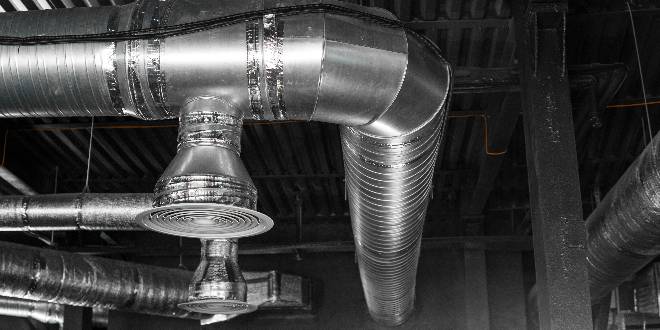
Design and Installation Impact
The efficiency of an air duct system begins with its design and installation. Properly designed ductwork will minimize the distance air must travel, reduce turns and bends, and ensure a balanced air distribution. Additionally, the installation process must ensure that ducts are properly sealed and insulated, especially in unconditioned spaces such as attics or basements, to prevent energy loss.
Material and Layout Considerations
The materials used for ductwork and the layout of the duct system also influence energy efficiency. For instance, ducts made from materials with better insulating properties can help maintain the temperature of the air as it moves through the system. Similarly, a straightforward ductwork layout, avoiding unnecessary turns and complex routes, reduces resistance and facilitates more efficient airflow.
The Importance of Maintenance
Over time, even the best-designed ductwork can become less efficient due to leaks, holes, or poor insulation. Regular maintenance is crucial to detect and rectify these issues promptly. Without this upkeep, even minor imperfections in the duct system can lead to significant energy losses as heated or cooled air escapes before reaching its intended destination.
Understanding the intricate relationship between air ducts and energy efficiency is crucial for homeowners looking to optimize their HVAC systems. It’s not merely about the air flowing through the ducts but ensuring this air remains at the desired temperature throughout its journey. Recognizing the critical nature of well-designed, installed, and maintained ductwork is the first step toward achieving a more energy-efficient home.
Pros of Air Ducts for Energy Efficiency
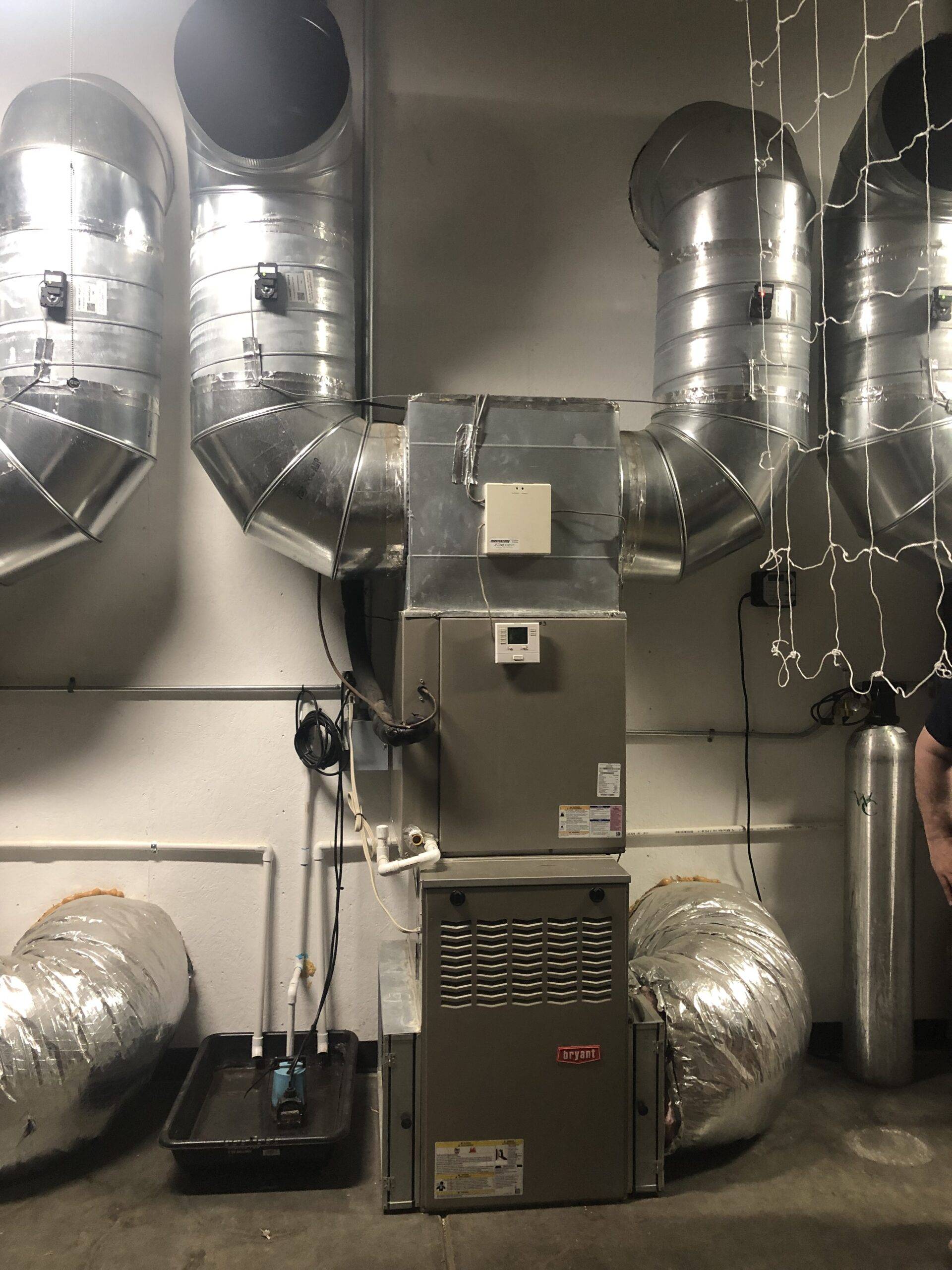
Enhanced Airflow and Distribution
A well-designed air duct system significantly improves the efficiency of airflow and distribution within a home. It ensures that heated or cooled air is evenly distributed across different rooms, reducing the need for the HVAC system to overwork. This not only helps maintain a consistent temperature throughout the space but also contributes to reduced energy consumption.
Increased Comfort Levels
Efficient air ducts lead to an enhanced comfort level by maintaining uniform temperature across all home areas. This is particularly beneficial in eliminating hot or cold spots, making every room comfortable to live in. When air ducts are properly sealed and insulated, they prevent air leakage, ensuring that the HVAC system can effectively maintain the desired indoor climate.
Energy Savings through Improved Insulation and Sealing
Proper insulation and sealing of air ducts are pivotal in preventing energy loss. Leaky or poorly insulated ducts can lead to a significant amount of heated or cooled air escaping, which, in turn, forces the HVAC system to work harder and consume more energy. By addressing these issues, homeowners can achieve considerable energy savings as the HVAC system operates more efficiently.
Cons of Air Ducts for Energy Efficiency
Potential for Leakage and Heat Loss
One of the major drawbacks of air duct systems in terms of energy efficiency is the potential for leakage and heat loss. If ducts are not properly sealed, they can allow conditioned air to escape, leading to inefficiencies in the HVAC system. This not only increases energy consumption but also results in higher utility bills.
Regular Maintenance Requirements
Air ducts require regular maintenance to operate efficiently. This includes inspecting for leaks or damage, sealing any identified issues, and air duct cleaning to prevent blockages. For some homeowners, the need for ongoing maintenance can be seen as a disadvantage, especially if the ductwork is difficult to access or if the maintenance cost is high.
Installation and Upfront Costs
The initial installation or retrofitting of air ducts to improve energy efficiency can come with significant costs. This is especially true in older homes where modifying existing ductwork to meet current standards can be challenging and expensive. The upfront costs associated with improving or installing efficient ductwork may deter some homeowners despite the potential long-term energy savings.
In conclusion, while air ducts play a crucial role in the energy efficiency of HVAC systems, it’s important to weigh the pros and cons. Homeowners should consider the benefits of improved comfort and potential energy savings against the drawbacks of maintenance requirements and upfront costs. Understanding these factors will help make informed decisions about air duct improvements or installations.
Maximizing the Efficiency of Air Ducts
Ensuring your home’s air ducts operate at peak efficiency is crucial for maintaining a comfortable living environment and minimizing energy costs. Here are key strategies to maximize the energy efficiency of your air duct system:
Regular Maintenance and Inspections
Routine checks are essential to identify and address any issues that could compromise the efficiency of your air ducts. This includes looking for leaks, holes, or any signs of wear and tear that could allow heated or cooled air to escape. Sealing these leaks and cleaning dirty air ducts promptly can significantly reduce energy waste and improve system performance.
- Professional Inspections: Having a professional inspect your ductwork can help uncover hidden problems that you might not be able to find on your own. Our team can perform thorough inspections, ensuring that every part of your duct system is evaluated for potential efficiency improvements.
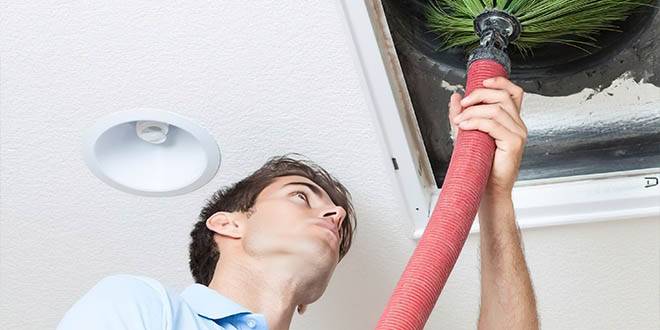
Upgrading Insulation
Proper insulation is critical for maintaining the temperature of the air as it travels through your ducts, especially in unconditioned spaces such as attics, basements, or crawl spaces. Upgrading insulation around your ductwork can prevent energy loss, keeping the air from the HVAC system to your living spaces at its intended temperature.
- Choosing the Right Insulation: Different types of insulation materials and methods are available, and choosing the right one for your ductwork can make a significant difference in energy efficiency. We can advise on the best insulation options for your specific needs.
Professional Installation and Design
The initial design and installation of your ductwork play a significant role in its long-term efficiency. Ensuring that your duct system is designed efficiently and installed correctly is paramount.
- Optimized Duct Layout: A layout that minimizes the distance air must travel and reduces the number of turns and bends can improve efficiency. We specialize in designing duct systems that ensure optimal airflow and energy use.
- Sealing and Insulation: Proper sealing and insulation during installation are crucial to prevent leaks and energy loss. Our professional installation services include meticulous attention to these details, ensuring your ductwork is set up for maximum efficiency from the start.
By focusing on regular maintenance, upgrading insulation, and ensuring professional installation and design, you can significantly enhance the energy efficiency of your air ducts. Not only does this lead to improved comfort and air quality in your home, but it also contributes to lower energy bills and a reduced environmental impact. If you want to optimize your HVAC system, consider these steps as a roadmap to achieving a more energy-efficient home.
Take Action Now! ????
Ready to enhance your home’s comfort and slash those energy bills? All Weather Heating & Air Conditioning is here to help! ???????? Let us optimize your air ducts for peak efficiency. Connect with us today for a consultation and start enjoying a more energy-efficient, comfortable home. Your journey to savings begins now!

